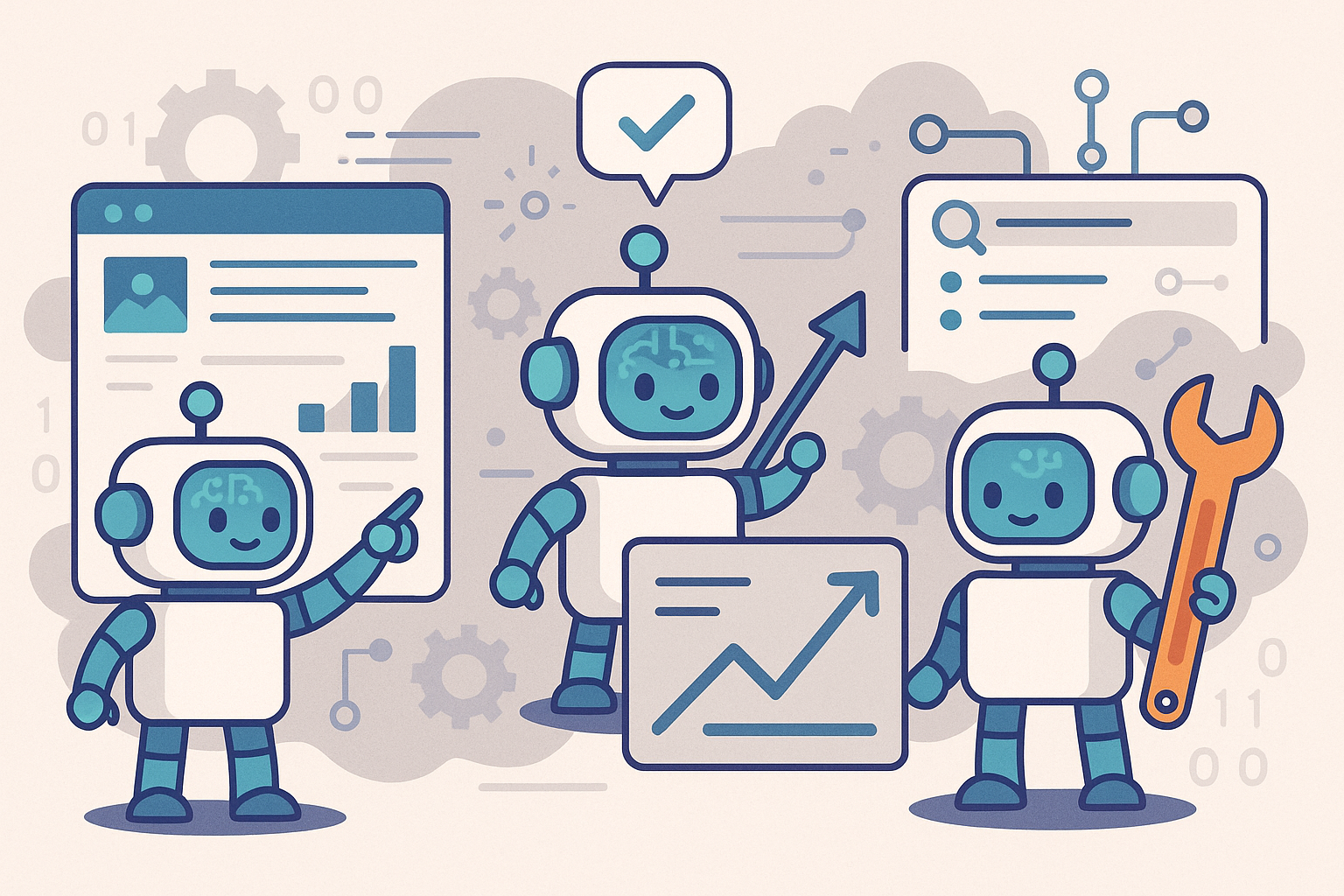Login to leave a comment.

AI agents represent a significant leap forward in artificial intelligence technology, moving beyond simple chatbots to autonomous systems capable of performing complex tasks on behalf of users. Unlike traditional AI systems that respond to prompts, AI agents can perceive their environment, make decisions independently, and take actions over extended periods to achieve specific goals. These sophisticated programs are transforming how businesses operate by automating workflows, solving multi-step problems, and adapting to changing circumstances without constant human oversight.
What Are AI Agents?
An AI agent is fundamentally different from the AI tools most people are familiar with today. While traditional large language models like ChatGPT generate responses based on their training data, AI agents go several steps further1. They are autonomous systems that can perceive their environment, analyze situations, make decisions, and execute actions to achieve predefined goals.
At their core, AI agents are powered by large language models (LLMs) that serve as their cognitive foundation1. However, what sets them apart is their ability to use external tools, access real-time information, and maintain memory of past interactions. This capability allows them to adapt and provide increasingly personalized experiences over time1.
The concept isn't entirely new – early examples of agent-like behavior can be traced back to chess-playing programs from the 1960s. However, the recent surge in interest began in 2023 when major tech companies like Google, Microsoft, and Meta began heavily investing in agent technology.
How AI Agents Function
AI agents operate through a sophisticated architecture comprising four key components that work together to enable intelligent behavior. The profiling module defines the agent's role and purpose within its operational context. The memory component allows agents to store and recall past interactions, experiences, and outcomes – crucial for learning and adaptation over time.
Planning modules enable agents to strategize and develop future actions based on their goals and gathered information, while the action module translates decisions into specific executable tasks. This architecture allows AI agents to perform task decomposition, breaking down complex objectives into manageable subtasks that can be executed autonomously.
What makes AI agents particularly powerful is their ability to use tool calling on the backend to obtain up-to-date information and optimize workflows without human intervention1. This capability significantly broadens the possibilities for real-world applications compared to traditional AI systems.
Types of AI Agents
The AI agent landscape encompasses seven distinct categories, each designed for specific use cases and environments. Simple reflex agents operate based solely on current environmental inputs using condition-action rules, like a thermostat that activates heating when temperatures drop below a threshold.
Model-based reflex agents represent a more sophisticated approach, maintaining an internal model of their environment and using memory to track states over time. This allows them to function effectively even when environmental information is incomplete, such as robot vacuums that remember room layouts and avoid previously cleaned areas.
Goal-based agents and utility-based agents add layers of complexity by incorporating specific objectives and decision-making frameworks that evaluate multiple possible actions. Learning agents can modify their behavior based on experience, while hierarchical agents can manage complex, multi-level task structures.
Real-World Applications Across Industries
AI agents are finding practical applications across numerous business sectors, delivering measurable results and transforming traditional workflows. In marketing, these systems analyze vast datasets including social media trends and industry publications to provide actionable insights for campaign timing and strategy development.
Sales organizations leverage AI agents for precision targeting, using real-time behavioral data and browsing history to deliver personalized content that adapts to individual customer preferences. Technical support teams deploy agents to automate troubleshooting processes and provide immediate assistance to customers with common issues.
The financial sector utilizes AI agents for fraud detection, risk assessment, and automated compliance monitoring, while human resources departments employ them for resume screening, interview scheduling, and employee onboarding processes. In logistics and supply chain management, AI agents optimize inventory levels, shipping routes, and delivery schedules with remarkable efficiency.
The Future of AI Agents
The trajectory of AI agent development suggests a fundamental shift in how we interact with technology and conduct business operations. Industry experts predict that AI agents will contribute to automating up to 50% of specific business processes by 2055. This transformation extends beyond simple task automation to encompass complex decision-making and strategic planning capabilities.
The distinction between intelligent agents and AI agents continues to evolve, with intelligent agents focusing on adaptive learning and continuous improvement, while AI agents excel at executing predefined objectives with remarkable efficiency. As these technologies mature, we can expect to see increasingly sophisticated agents capable of handling multi-domain tasks and collaborating with human workers in unprecedented ways.
Conclusion
AI agents represent more than just an incremental improvement in artificial intelligence – they embody a paradigm shift toward truly autonomous digital assistants capable of complex reasoning and action. As businesses grapple with increasing complexity and data volumes, these systems offer practical solutions for automation, decision support, and workflow optimization across virtually every industry sector.
The key to successful AI agent implementation lies in understanding their capabilities and limitations while identifying specific use cases where their autonomous nature can deliver measurable value. As this technology continues to evolve, organizations that embrace AI agents early will likely gain significant competitive advantages in efficiency, decision-making speed, and operational scalability.
0 comments
No comments yet. Be the first to comment!